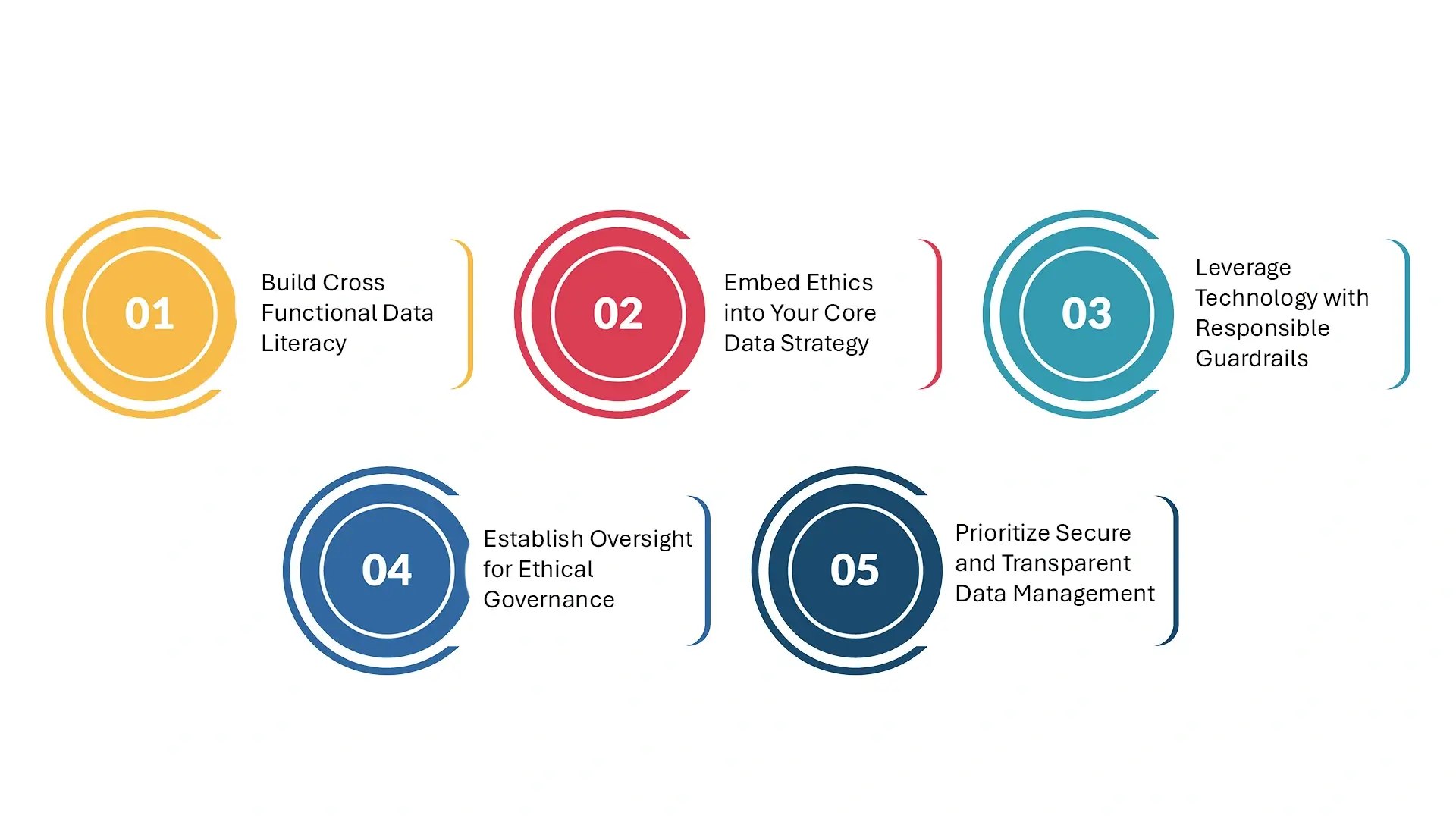In today’s hyper-connected world, the amount of data generated is growing at an unprecedented rate—fuelling everything from customer personalization to artificial intelligence. But with this power comes responsibility. That’s where ethical data enters the equation: a principle that demands businesses go beyond regulatory mandates and embed morality into how they collect, store, analyze, and use data.
Ethical data is not just about legal checkboxes. It’s about building trust, protecting individuals, and ensuring that data serves the greater good—not just corporate objectives.
What is Ethical Data?
Ethical data refers to the principles and practices that guide how data is collected, stored, accessed, and used in a way that respects privacy, fairness, accountability, and transparency. It is a branch of ethics focused specifically on the aspects of data—its origin, intent, interpretation, and impact.
From personal data and personal information to predictive models powered by AI and machine learning, ethical data frameworks aim to ensure ethical treatment of individuals and society. It ensures that any organization that handles data does so in a way that protects customer rights, avoids harm, and maintains transparency throughout the data usage lifecycle.
Why is Data Ethics Important?
So, why is data ethics important now more than ever? Because:
- Data breaches are rising, eroding customers’ trust and exposing businesses to legal and reputational risk.
- The explosion of AI and machine learning means decisions are increasingly being made by algorithms—making AI ethics and responsible AI essential.
- Governments and regulatory bodies are demanding accountability in data collection and analysis, especially around personal data.
- Consumers today expect companies to not only comply with data governance and data security regulations but also behave ethically.
- In both private and public sectors, ethics is becoming a business differentiator—not just a compliance mandate.
Ethical Data vs. Data Governance
While data governance provides the structure for managing data including access controls, quality, and compliance, ethical data practices go deeper into intent and impact. A strong data strategy integrates both—governance ensures order, while ethics ensures responsibility.
For instance, your data governance framework might allow for collecting location data—but ethical data collection asks: “Do we really need this data? Will it be used fairly? Have we been transparent with the individual?”
Core Pillars of Ethical Data Practices
An effective data ethics framework is built on these foundational elements:
- Transparency: Be clear about what data you’re collecting and why. Transparent communication about data usage builds credibility.
- Consent and Control: Collect data only with informed and revocable consent. Empower users to access, correct, or delete their personal information.
- Purpose Limitation: Use data solely for the stated, ethical purpose—no backdoors or unintended repurposing.
- Fairness and Inclusion: Address the ethical risks of bias in ethics in data analytics and algorithmic decision-making. Avoid reinforcing social inequalities.
- Security and Protection: Ensure strong data security to prevent data breaches, theft, or misuse. Ethical data is also safe data.
- Accountability: Assign responsibility at every stage of the data lifecycle. Organizations must be ready to demonstrate that they’ve followed ethical data practices.
How to Operationalize Ethical Data in the Enterprise


Operationalizing ethical data use requires a deliberate approach that aligns your people, processes, and technologies around a common purpose—ensuring that data is handled with integrity, transparency, and accountability at every stage of its lifecycle. Here’s how enterprises can take actionable steps:
1. Build Cross-Functional Data Literacy
Equip teams across business units with the knowledge to understand not just how data works, but why it matters. Enhancing data literacy ensures that individuals recognize the ethical implications of how data is collected, stored, accessed, and used. This shared understanding is foundational to fostering responsible behavior and reducing data misuse.
2. Embed Ethics into Your Core Data Strategy
Ethical data use must be embedded into the DNA of your data strategy—not treated as an add-on. This includes integrating ethical considerations into data governance frameworks, policy development, and risk assessments. By designing policies with privacy, fairness, and compliance in mind from the outset, enterprises can preemptively address ethical challenges rather than reactively resolve them.
3. Leverage Technology with Responsible Guardrails
Modern enterprises increasingly rely on AI, automation, and analytics to make data-driven decisions. But with that comes a heightened responsibility. Ensure that the technologies deployed include mechanisms for transparency, bias detection, and governance control. Responsible use of AI means actively monitoring how algorithms interpret data, and whether those interpretations align with your organization’s values and compliance obligations.
4. Establish Oversight for Ethical Governance
Operational excellence in ethical data use involves creating formal mechanisms for oversight. This could take the shape of an internal data ethics committee or dedicated governance function tasked with evaluating data collection practices, reviewing emerging risks, and ensuring alignment with global regulations and internal standards. Consistent review processes promote trust, accountability, and compliance across the organization.
5. Prioritize Secure and Transparent Data Management
Ethical data use is inseparable from data security and data governance. Organizations must maintain full visibility into data flows, ensure access is role-appropriate, and enforce policies that prevent over-retention or unauthorized exposure. Whether it’s securing personal data or managing sensitive enterprise files, ethical responsibility begins with knowing what you have, where it resides, and how it’s being used.
Common Pitfalls and Challenges
Even with good intent, businesses often fall short of ethical standards due to:
- Siloed data governance that prevents full visibility.
- Lack of clear access controls or auditability.
- Over-collection of sensitive data without valid purpose.
- Deploying AI systems without understanding AI ethics or evaluating bias.
- Misusing customer data to influence behavior without transparency.
These issues don’t just risk compliance—they risk credibility.
Understanding Data Ethics is Non-Negotiable
To understand data ethics is to realize that data decisions have real-world consequences. Whether it’s a loan denial by an AI algorithm, a privacy violation in cloud storage, or a targeted ad that exploits vulnerabilities—ethics matter.
Enterprises that adopt robust data practices and ethical data collection policies aren’t just avoiding scandals—they’re future-proofing their business. They’re showing the world they can lead with both intelligence and integrity.
As the world becomes more digital, ethical data is not a constraint—it’s a compass. The businesses that follow it are the ones customers trust, governments support, and society’s value.
Getting Started with Data Dynamics:
- Learn about Unstructured Data Management
- Schedule a demo with our team
- Read the latest blog: Untangling the Ethical Knot: Data Analytics as the Key to Unlocking Responsible and Effective AI






